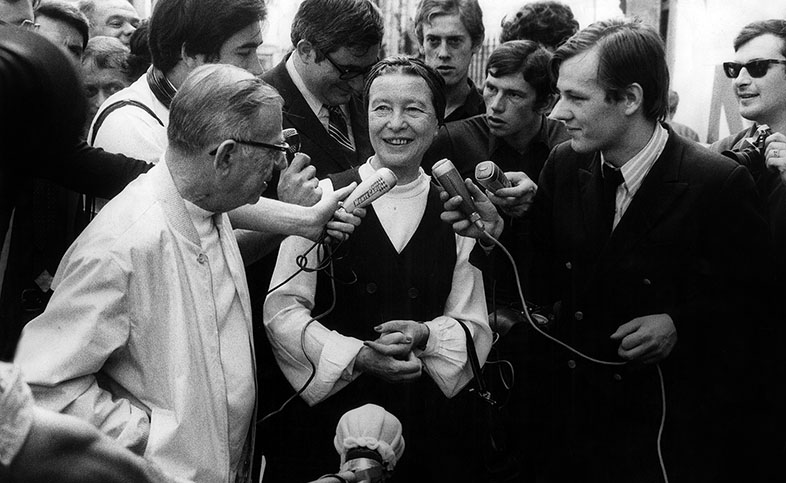2.3 Comparison with ethnic minorities
In the following extract, Simone de Beauvoir argues that forms of discrimination based on race, class or sex are ultimately similar, although their aims differ. She describes the views, including extremely violent ones, of racist, anti-Semite and sexist people. It goes without saying that in all her work she argued and fought against them.
Activity 5 Simone de Beauvoir – The Second Sex (Part D)
To prove women’s inferiority, antifeminists began to draw not only, as before, on religion, philosophy and theology, but also on science: biology, experimental psychology, and so forth. At most they were willing to grant ‘separate but equal status’ to the other sex. That winning formula is most significant: it is exactly that formula the Jim Crow laws put into practice with regard to black Americans; this so-called egalitarian segregation served only to introduce the most extreme forms of discrimination. This convergence is in no way pure chance: whether it is race, caste, class or sex reduced to an inferior condition, the justification process is the same. ‘The eternal feminine’ corresponds to ‘the black soul’ or ‘the Jewish character’. However, the Jewish problem on the whole is very different from the two others: for the anti-Semite, the Jew is more an enemy than an inferior and no place on this earth is recognised as his own; it would be preferable to see him annihilated. But there are deep analogies between the situations of women and blacks: both are liberated today from the same paternalism, and the former master caste wants to keep them ‘in their place’, that is, the place chosen for them; in both cases, they praise, more or less sincerely, the virtues of the ‘good black’, the carefree, childlike, merry soul of the resigned black, and the woman who is a ‘true woman’–frivolous, infantile, irresponsible, the woman subjugated to man. In both cases, the ruling caste bases its argument on the state of affairs it created itself. The familiar line from George Bernard Shaw sums it up: ‘The white American relegates the black to the rank of shoe-shine boy, and then concludes that blacks are only good for shining shoes.’ The same vicious circle can be found in all analogous circumstances: when an individual or a group of individuals is kept in a situation of inferiority, the fact is that he or they are inferior. But the scope of the verb to be must be understood; bad faith means giving it a substantive value, when in fact it has the sense of the Hegelian dynamic: to be is to have become, to have been made as one manifests oneself. Yes, women in general are today inferior to men; that is, their situation provides them with fewer possibilities: the question is whether this state of affairs must be perpetuated.
Read the extract and consider the similarities that Beauvoir draws between the condition of women and that of black people.
Answer
For Beauvoir, both women and black people have been assigned particular ways of being (‘carefree’ black person; ‘frivolous’ woman), and cannot be accepted if they do not conform to those models or stereotypes. Both women and black people have been kept in situations of inferiority, and they have had far fewer opportunities. For these reasons, Beauvoir argues, they are still inferior. In other words, their inferiority, in both cases, has been created.
